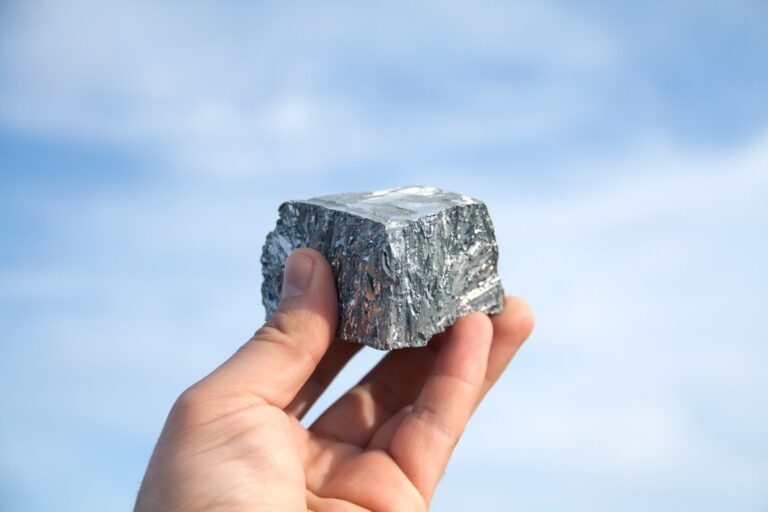In recent years, innovation has been accelerating in the development of new materials. A new French startup, Altrove, intends to play a role in this cycle of innovation. This deep tech startup has already raised €3.7 million (around $4 million at the current exchange rate).
If you’re interested in the development of new materials, you may have noticed that several teams have shared important advances with the research community in materials prediction.
“Historically, over the last 50 years, research and development of new materials has progressed at a very slow pace,” Thibaud Martin, co-founder and CEO of Altrove, told TechCrunch. There were several bottlenecks. One of them, the most important, was the starting point: How can we predict whether materials made of a handful of elements could theoretically exist?
When you put two different chemical elements together, there are tens of thousands of possibilities. When you want to work with three different elements, there are tens of thousands of combinations. With four elements, you get millions of possibilities.
Teams working at DeepMind, Microsoft, Meta and Orbital Materials have developed artificial intelligence models to overcome computational constraints and predict new materials that might exist in a stable state. “More stable materials have been predicted in the last nine months than in the previous 49 years,” Martin said.
But solving this problem is only part of the equation. Knowing that new materials can exist is not enough to make them. You have to find the recipe.
“A recipe is not just about what you make. It’s also about the proportions, the temperature, the order and the duration of preparation. So there are many factors and many variables that go into how you make new materials,” Martin said.
Altrove focuses on inorganic materials, starting with rare earths in particular. Rare earths represent a market opportunity because they are hard to find, their price varies widely, and they often come from China. Many companies are trying to reduce their reliance on China as part of their supply chain to avoid regulatory uncertainties.
Create an automated iteration loop
The company doesn’t invent new materials from scratch, but selects interesting candidates from all the new materials that have been predicted. Altrove then uses its own AI models to generate potential recipes for these materials.
Currently, the company is testing these recipes one by one and producing a small sample of each material. Then, Altrove has developed a proprietary characterization technology that uses an X-ray diffractometer to understand whether the output material performs as expected.
“It may sound trivial, but it’s actually very complicated to check what you’ve done and understand why. In most cases, what you’ve done is not exactly what you were looking for at the beginning,” Martin explains.
This is where Altrove stands out, as the company’s co-founder and CTO, Joonathan Laulainen, has a PhD in materials science and is an expert in characterization. The startup owns intellectual property rights related to characterization.
Learning from the characterization step to improve your recipe is essential when it comes to manufacturing new materials. That’s why Altrove wants to automate its lab so it can test more recipes at once and speed up the feedback loop.
“We want to create the first high-throughput methodology. In other words, pure prediction only gets you 30% of the material that is actually industrially exploitable. The other 70% involves real-life iterations. That’s why it’s so important to have an automated lab, because it increases throughput and allows you to parallelize more experiments,” Martin said.
Altrove describes itself as a hardware-based AI company. It plans to license its new materials or manufacture them itself with third-party partners. The company raised €3.7 million in a funding round led by Contrarian Ventures, in which Emblem also participated. Several business angels have also invested in the startup, including Thomas Clozel (CEO of Owkin), Julien Chaumond (CTO of Hugging Face) and Nikolaj Deichmann (founder of 3Shape).
The startup is taking inspiration from biotech companies that have turned to AI to find new drugs and treatments, but this time for new materials. Altrove plans to build its automated lab by the end of the year and sell its first asset within 18 months.


